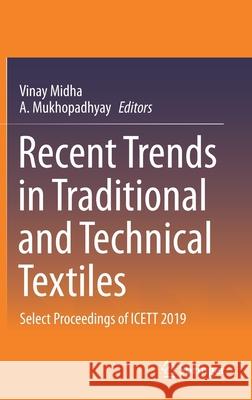Recent Trends in Traditional and Technical Textiles: Select Proceedings of Icett 2019 » książka
topmenu
Recent Trends in Traditional and Technical Textiles: Select Proceedings of Icett 2019
ISBN-13: 9789811599941 / Angielski / Twarda / 2021 / 229 str.
Recent Trends in Traditional and Technical Textiles: Select Proceedings of Icett 2019
ISBN-13: 9789811599941 / Angielski / Twarda / 2021 / 229 str.
cena 603,81
(netto: 575,06 VAT: 5%)
Najniższa cena z 30 dni: 578,30
(netto: 575,06 VAT: 5%)
Najniższa cena z 30 dni: 578,30
Termin realizacji zamówienia:
ok. 22 dni roboczych.
ok. 22 dni roboczych.
Darmowa dostawa!
Kategorie:
Kategorie BISAC:
Wydawca:
Springer
Język:
Angielski
ISBN-13:
9789811599941
Rok wydania:
2021
Wydanie:
2021
Ilość stron:
229
Waga:
0.51 kg
Wymiary:
23.39 x 15.6 x 1.42
Oprawa:
Twarda
Wolumenów:
01
Dodatkowe informacje:
Wydanie ilustrowane











